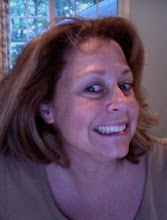I finished reading The Frozen River by Ariel Lawhon the night Wayne called me out of the blue to tell me he was missing his dad. We had a nice conversation, and then I couldn't get back to sleep so I stayed up until 11:30 pm (late for me) to gorge on this book’s conclusion.
Reading this book was a multi-step process for me. The journey began when Lisa recommended it, and I immediately put it on hold at the library. After waiting a very long time for my turn, I was not initially super impressed with the writing.
Phase 1: I was definitely drawn in by the vivid depiction of a harrowing scene in the beginning: a body violently traveling down an icy, turbulent river in 1789 Maine. The story is historical fiction, which I love, but with a torrid twist and a mystery. At first I thought it was written with a bit too much sensationalism for my taste. I like my historical fiction dry and boring, just kidding. But this felt like I was reading a grisly, modern, true-crime chronicle.
Phase 2: To my astonishment, I discovered the novel was based on a real woman, who kept an actual written diary chronicling her life as a midwife during the early days of America. Some of the book is fictionalized because many of the journal entries are sparsely detailed, but it is still a compelling commentary on early American society.
There is a nonfiction account of this story titled A Midwife's Tale: The Life of Martha Ballard, Based on Her Diary 1785-1812 that I started to read but ran out of time before my renewal was rejected. I hope to pick it up again and learn more about this earnest woman. Published in 1990 by historian Laurel Thatcher Ulrich, the book is a Pulitzer Prize winner. A documentary version of A Midwife's Tale was produced in 1997 by the PBS series, The American Experience. I'm very annoyed that I have to purchase the DVD on Amazon for $19 or subscribe to PBS Documentaries for $4.99/month in order to watch it.
Phase 3: Naturally I turned to other sources to uncover more about Martha Ballard and her diary. Cool fact from Wikipedia, "Under a 1668 Massachusetts law, midwives were often asked to pressure young unwed mothers into naming the father of the child in the throes of labor, an action which Ballard frequently participated in." Maine, of course, was part of the Massachusetts Bay Colony at that time.
The provenance of the original journal itself is interesting as it turns out it ended up in the hands of "Ballard's great-great granddaughter, Mary Hobart, one of the first female US physicians to graduate from the New York Infirmary for Women and Children in 1884, the same year that she received the diary."
Eventually the journal found its way to the Maine State Library where it was unearthed by the historian Laurel Thatcher Urlich who began to piece together stories by cataloging journal entries and cross-referencing with other documents, bringing to life the post-revolutionary world of Hallowell, Maine.
Here are a couple of quotes, in Martha's own words that demonstrate her thoughts about her record-keeping. In the beginning of her diary she states, "Memory is a wicked thing that warps and twists. But paper and ink receive the truth without emotion, and they read it back without partiality." Towards the end, she concludes, "Or maybe—if I am honest—it is because these markings of ink and paper will one day be the only proof that I have existed in this world." The writer in me certainly relates to both of those sentiments.
One final note that touches my heart as a writer and a lover of history.
"I want the world to remember that small acts, done in love, matter every bit as much as the ones that make the newspaper and the history books."


No comments:
Post a Comment